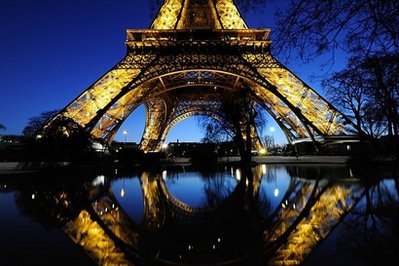President Nicolas Sarkozy is awkwardly trying to stamp out a controversy over his ministers taking sun-and-sea holidays paid for by the Egyptian government and a Tunisian businessman. Some top French politicians have made a habit of planning vacations around the largesse of foreign governments or influential tycoons. But the long-standing practice has come under scrutiny following revelations the prime minister’s family Christmas holiday was funded by Egypt’s government, and the foreign minister vacationed in Tunisia, hitching a ride on a businessman’s jet to avoid violent anti-government protests there.
French media had a field day Wednesday, running front-page photos of Prime Minister Francois Fillon and Foreign Minister Michele Alliot-Marie with headlines such as “Fillon Government Experiencing Heavy Turbulence.”
Sarkozy told ministers at a Cabinet meeting Wednesday to “prioritize France” when picking holiday destinations. But in a political faux pas of his own, Sarkozy said any invitations by foreign governments must be approved by the prime minister – the same man who vacationed on Egypt’s dime.
“It’s only by being irreproachable that highly placed decision makers will be able to shore up citizens’ confidence in the institutions of the state,” Sarkozy said in a statement. “That which was common several years ago can be seen as shocking today.”
Accepting junkets by foreign governments – a longtime political perk – took on tone-deaf overtones after the Le Canard Enchaine newspaper revealed that Alliot-Marie vacationed in Tunisia amid violent popular protests that toppled the North African nation’s autocratic leader Zine El Abidine Ben Ali.
Alliot-Marie acknowledged accepting a ride in a private plane owned by a Tunisian businessman during the 2010 year-end holiday. She insisted the man was a personal friend who was victimized by Tunisia’s fallen regime, not a supporter.
Still, critics used the ill-timed trip as evidence of Alliot-Marie’s cozy relations with Ben Ali and suggested that was why she was slow to speak out in support of anti-government protesters. Alliot-Marie also came under fire for offering French police know-how to Tunisian security forces while the number of demonstrators killed by Tunisian police mounted.
The opposition called on her to resign, but she has resisted.
Fillon stood by Alliot-Marie, but soon found himself in the same tight spot, as Le Canard Enchaine ran a cover story about his own holiday getaway to Egypt. Fillon acknowledged late Tuesday that the Egyptian government gave his family free lodging, a plane flight and Nile boat trip during their Dec. 26-Jan. 2 vacation in Egypt.
The trip came ahead of mass protests aimed at ousting Egyptian President Hosni Mubarak – demonstrations that entered their 16th day Wednesday. Still, Fillon’s trip raised ethical red flags. France was among European governments calling last week for a quick democratic transition in Egypt in response to the protests.
Sarkozy himself came under fire after his election in 2007 for taking a post-campaign getaway on a yacht belonging to French magnate Vincent Bollore.
New questions emerged Wednesday about Sarkozy’s own year-end holiday in Morocco and a recent weekend in New York. Government spokesman Francois Baroin, when asked who footed the bill for those trips, refused to provide any details about Sarkozy’s holidays.
Miklos Marschall, the deputy managing director of the anti-corruption group Transparency International, called the whole situation “embarrassing.”
“I’m sure the prime minister’s judgment hasn’t been compromised but by accepting the invitation, it puts him in a position where people can legitimately complain that it has,” Marschall told The Associated Press. “In established democracies, such behavior is unacceptable and goes against all basic transparency standards.”
Elsewhere in Europe, it would be almost inconceivable for politicians to accept foreign government junkets.
In Scandinavia, Germany and Austria, private family vacations are the norm for most politicians. British, Spanish and Hungarian politicians have taken summer holidays at home in the past few years, partly in response to the financial crisis.
In contrast, Russian Prime Minister Vladimir Putin and his flamboyant Italian counterpart, Silvio Berlusconi often vacation together at Berlusconi’s villa in Sardinia or at Putin’s official residence on the Black Sea.
